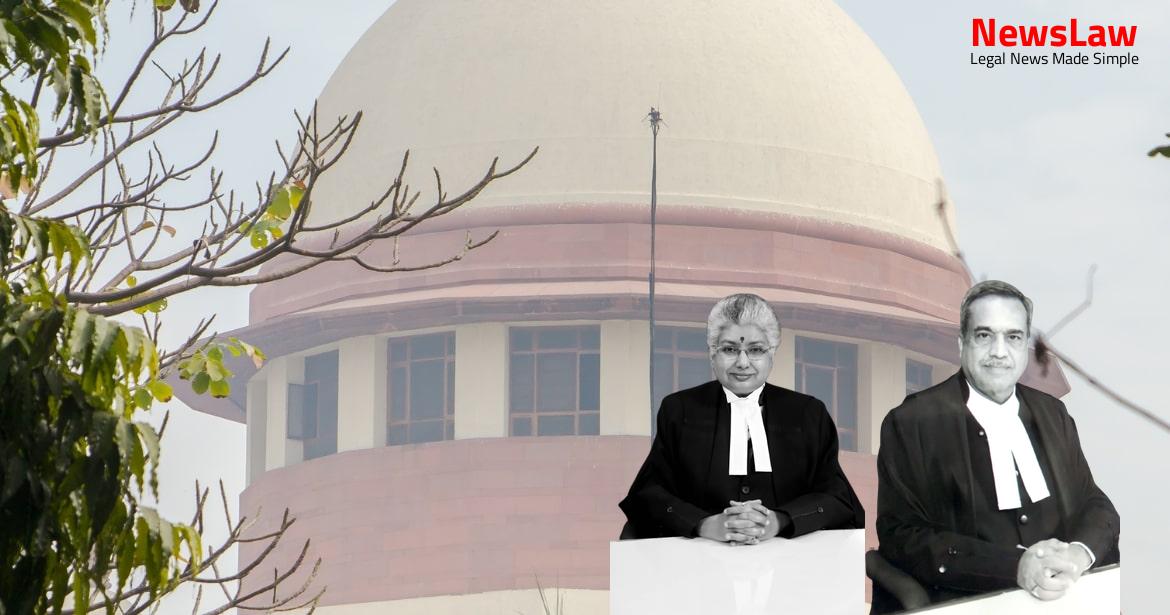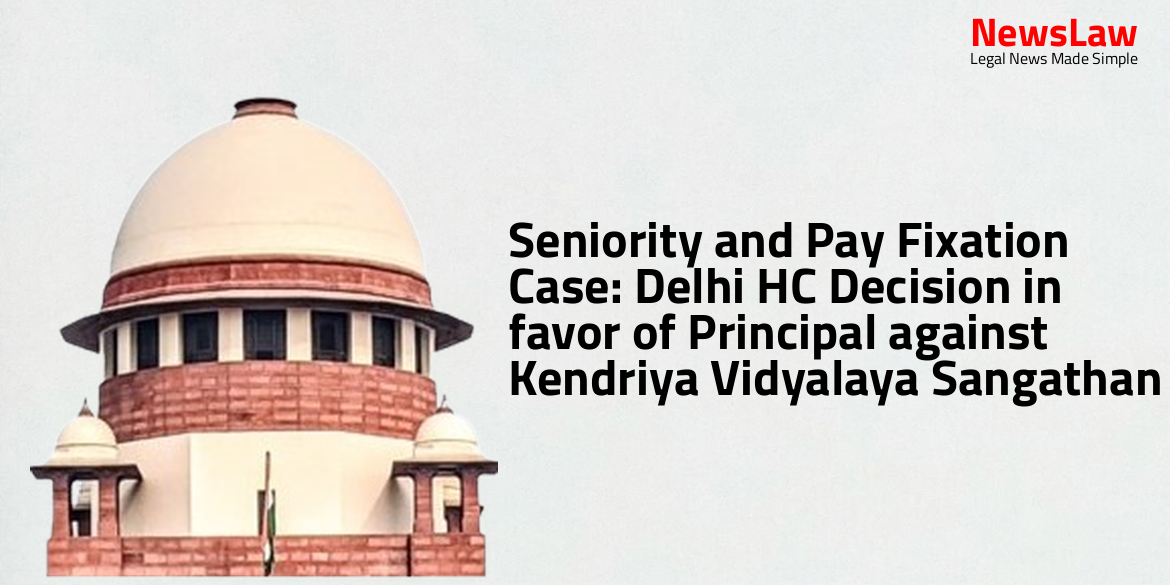In a complex legal battle over disputed forest land ownership, the court’s analysis delves into jurisdictional intricacies and the cancellation of jenmam rights and Purchase Certificates. The case highlights the importance of proper legal procedures and the interpretation of laws governing forest land disputes. Stay tuned for a breakdown of the court’s legal analysis in this contentious case.
Facts
- The District Development Committee’s decision led to a survey conducted by the Taluk Surveyor, Taliparamba to re-fix the land boundary.
- Revenue authorities are obligated to accept basic tax under the 1961 Act when respondents possess the properties in question.
- A survey sketch presented before the Land Tribunal during objections by the Forest department.
- Divisional Forest Officer stated respondents have no rights over vested government forest land.
- Legal proceedings ensued, with notices issued to respondents and subsequent challenges in the High Court.
- Orders were appealed, remanded, and eventually cancelled regarding assignment of jenmam rights and Purchase Certificates.
- Representations and grievances were raised to the District Collector regarding the cancelled assignments.
- Various court orders and legal actions were taken against the respondents regarding the disputed forest land.
- The transfer and vesting of private forests in Kerala to the Government under the 1971 Act was highlighted.
- The Single Judge directed the Village Officer to accept basic tax from the respondents based on earlier affidavits.
- High Court dismissed second appeals stating civil courts have no jurisdiction over matters for Forest Tribunal.
- Division Bench upheld Single Judge’s decision to accept basic tax from respondents based on affidavits.
- Appellants challenged the dismissal of their appeal by Division Bench.
- Appellants argued that the disputed land is forest department property and no tax should be accepted.
Also Read: Ruling on Circumstantial Evidence in Murder Case
Arguments
- The petitioner argues that the land in question is vested with the forest department under the 1971 Act, and the rights of the respondents have been cancelled.
- The petitioner highlights that the respondents sought a writ of mandamus to assert their ownership over the land, which is declared as forest land and vested with the Government/Forest Department.
- It is emphasized that the High Court erred in directing the revenue authorities to accept basic tax from the respondents, who have no rightful claim to the property.
- The petitioner contests the judgments of the High Court and the Forest Tribunal, noting that the respondents have lost before the appropriate authority, and the cancellation of jenmam rights and Purchase Certificates is final.
- Reference is made to Section 8 and Section 3(1) of the 1971 Act regarding settlement of disputes and vesting of private forests in the Government.
- High Court relied on counter affidavits filed by Divisional Forest Officer
- High Court directed revenue authorities to accept basic tax from respondents
Also Read: Challenging Legal Presumptions in Negotiable Instrument Cases
Analysis
- The respondents filed a writ petition for a mandamus directing revenue authorities to accept basic tax, claiming ownership and possession of disputed land with jenmam rights and purchase certificates.
- The Division Bench of the High Court affirmed the Single Judge’s order in favor of the respondents based on their claimed ownership and possession admitted by the Divisional Forest Officer.
- The notification declaring the lands as vested forest land negates the jenmam rights and purchase certificates previously held by the respondents, as confirmed by the cancellation of said rights by the appropriate authority.
- The Forest Tribunal dismissed the application challenging the notification, and the High Court’s writ of mandamus directed revenue authorities to accept basic tax from the respondents despite the cancellation of rights and the lands being declared as forest land.
- The Land Tribunal also observed the lands are covered by government forest land and that the respondents cannot claim any right over the disputed lands.
- A notification was issued declaring the lands as private forest land in 1977 under Rule 2A of the 1972 Rules, further supporting the ruling that the respondents do not have valid ownership rights over the lands.
- The High Court did not properly appreciate the mala fide intention of the respondents in seeking a writ of mandamus to establish their ownership over disputed lands declared as vested forest land since 1975/1977.
- The judgments and orders by the Division Bench and Single Judge of the High Court are unsustainable and should be quashed.
- Disputes regarding forest land can only be resolved under Section 8 of the 1971 Act.
- The respondents seeking a writ of mandamus to pay basic tax may be attempting to establish ownership through the backdoor.
Also Read: Legal Analysis Critique in High Court’s Quashing Order
Decision
- The present appeal is allowed.
- The impugned judgment and order passed by the Division Bench of the High Court dated 23.11.2017 in Writ Appeal No 29/2011 and the judgment and order dated 08.07.2010 passed in Writ Petition No 11252/2008, as well as the order dated 22.10.2010 passed in Review Petition No 877/2010 are quashed and set aside.
- No order as to costs in the facts and circumstances of the case.
Case Title: VILLAGE OFFICER Vs. CHUNAYAMAKKAL JOSEPH (2022 INSC 68)
Case Number: C.A. No.-000207-000207 / 2022



